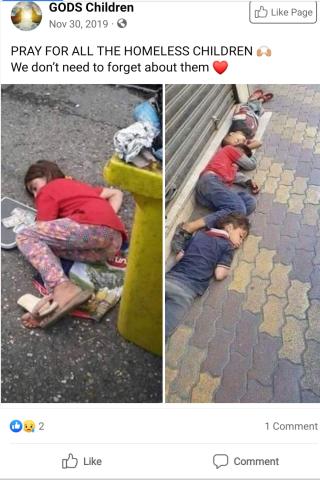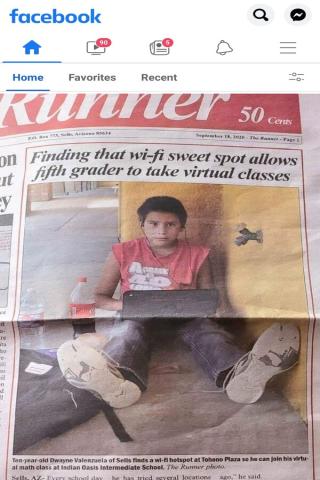On the evening of August 24 in Glendale, Arizona, one of the year's biggest concerts was happening: Beyonce's Renaissance Tour. However, a small workshop with an immense social message and hosted by ASU Project Humanities was taking place within a forty-five-minute drive from the concert in the Tempe History Museum. “Poverty Porn 101,” facilitated by Dr. Neal A. Lester, Foundation Professor of English and Founding Director of Project Humanities, guided audience members through the definition of the phrase "poverty porn," how to identify it, its historical context, and how to not take part in it.
“Poverty porn” refers to the exploitation through pictures and videos of vulnerable populations because of the feelings of gratitude and even superiority that it creates within those that share the media. The workshop's ability to be cognizant that some of the audience members, including myself, may not have come across the phrase previously and defined the phrase at the outset of the workshop laid a solid foundation for the workshop attendees. Then examples were presented to demonstrate what poverty porn looks like using videos on platforms that members can encounter in day-to-day life ranging from TikTok reels to CNN news stories sparking contemplation within the participant. Towards the end of the workshop, physical materials were handed to us to see and feel the physical manifestations of poverty porn, building further engagement and thus investment within the participant. Despite the workshop's overall success and various strengths in its ability to make its members invested, I want to make a few suggestions for future iterations of the workshop to consider.
The interactive nature of the workshop was able to build investment within participants throughout the workshop, but revisions of the workshop could create reflective ripples that follow attendees after they leave. For example, asking participants to scroll through their social media or the websites of online charities they are familiar with would have been more impactful and allowed members to crack narratives that familiar organizations attempt to push for what they really are, hence striking a deeper chord. Although I recognize that not all individuals may have the resources to interact with personal technological devices throughout the workshop, I suggest partnering individuals together to look up organizations they are familiar with. In addition, the strategies provided to counteract poverty porn, such as supporting people in vulnerable times of their life and helping in the efforts to fight for their rights or researching where one's money goes when donated to a certain organization could have suggested one more idea. Another strategy that can be employed to reduce poverty porn is when witnessing someone either record or consume the harmful media, they should confront them. If confronting a person puts one in harm's way, I would say not to put oneself in danger but for scenarios that aren't threatening, bringing awareness to poverty porn may awaken the individual from the capitalist norms in which people sleepwalk through every day of their lives.
The past has been filtered through the lens of white capitalist patriarchal norms and produced a singular story with multiple chapters. One of these chapters is the centuries-old narrative of a white savior coming to save others, which mirrors the nature of the modern-day issue of poverty porn. However, to counteract this story, more perspectives and stories must be added to our mainstream cultural library to rehumanize them from previous narratives that stripped them of their humanity. In the first class of our English 444: African American Short Stories this semester, we watched a TED talk called "The Danger of a Single Story," in which Nigerian author Chimamanda Adichie describes the personal and societal risks and harm of operating under a single story. If someone considered for a split-second the perspective and stories of those being filmed in poverty porn media, most would never hit the record button on their camera in the first place.

